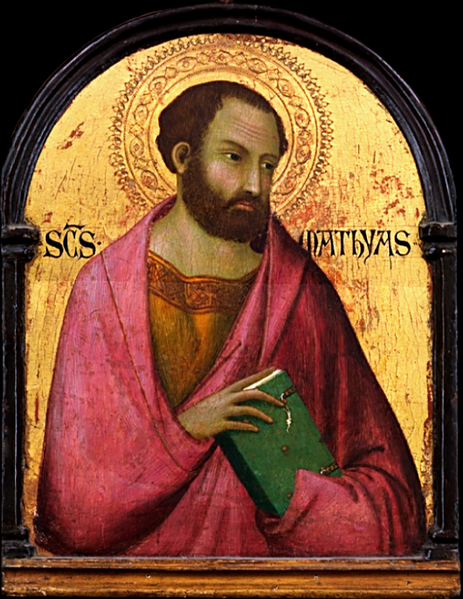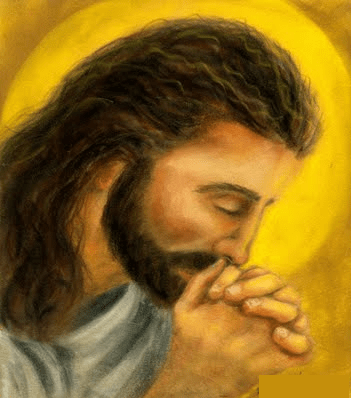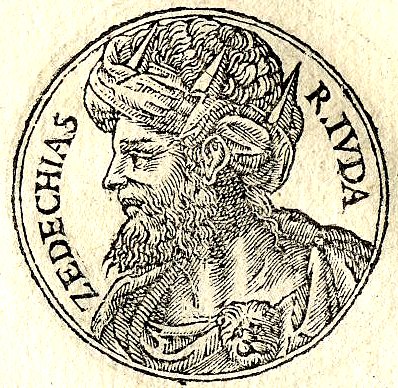
The Prophet Jeremiah by Michelangelo
Jeremiah 35: 1-11: If You Offer a Rechabite a Drink
The word that came to Jeremiah from the LORD in the days of King Jehoiakim son of Josiah of Judah: 2 Go to the house of the Rechabites, and speak with them, and bring them to the house of the LORD, into one of the chambers; then offer them wine to drink. 3 So I took Jaazaniah son of Jeremiah son of Habazziniah, and his brothers, and all his sons, and the whole house of the Rechabites. 4 I brought them to the house of the LORD into the chamber of the sons of Hanan son of Igdaliah, the man of God, which was near the chamber of the officials, above the chamber of Maaseiah son of Shallum, keeper of the threshold. 5 Then I set before the Rechabites pitchers full of wine, and cups; and I said to them, “Have some wine.” 6 But they answered, “We will drink no wine, for our ancestor Jonadab son of Rechab commanded us, ‘You shall never drink wine, neither you nor your children; 7 nor shall you ever build a house, or sow seed; nor shall you plant a vineyard, or even own one; but you shall live in tents all your days, that you may live many days in the land where you reside.’ 8 We have obeyed the charge of our ancestor Jonadab son of Rechab in all that he commanded us, to drink no wine all our days, ourselves, our wives, our sons, or our daughters, 9 and not to build houses to live in. We have no vineyard or field or seed; 10 but we have lived in tents, and have obeyed and done all that our ancestor Jonadab commanded us. 11 But when King Nebuchadrezzar of Babylon came up against the land, we said, ‘Come, and let us go to Jerusalem for fear of the army of the Chaldeans and the army of the Arameans.’ That is why we are living in Jerusalem.”
Knowing who one is and the story one is living out of is crucial to identity. The Rechabites, a part of the people known as Kenites who come into the promised land as allies of the tribes of Israel when they settled the land. The majority of the Kenites settled into life in cities and homes, but the descendants of Jonadab son of Rechab maintain a nomadic lifestyle consisting in a way of life very different than most of their kin and the surrounding nation of Israel. The Rechabite response to Jeremiah when offered wine demonstrates their way of life:
You shall never drink wine
You shall never build a house
You shall not sow seed, plant a vineyard or own one
Their actions living into this identity constitute who they are. They as a community remain faithful to this way of life which differentiates them from their surrounding kin and neighbors. They remain fixed to a lifestyle articulated by their ancestor and their actions in faithfulness to these commands mark them off as being Rechabite in contrast to the surrounding world. Many groups use specific actions and markers to act as boundaries of identity, and the Rechabites who are only in the city because of the invading Chaldean army demonstrate a contrast between themselves who have held fast to these markers of identity through the promises and command of their ancestor and Israel who has not held fast to their identity in the covenant with the Lord.
Jeremiah 31: 12-19:The Rechabites as an Object Lesson
12 Then the word of the LORD came to Jeremiah: 13 Thus says the LORD of hosts, the God of Israel: Go and say to the people of Judah and the inhabitants of Jerusalem, Can you not learn a lesson and obey my words? says the LORD. 14 The command has been carried out that Jonadab son of Rechab gave to his descendants to drink no wine; and they drink none to this day, for they have obeyed their ancestor’s command. But I myself have spoken to you persistently, and you have not obeyed me. 15 I have sent to you all my servants the prophets, sending them persistently, saying, ‘Turn now everyone of you from your evil way, and amend your doings, and do not go after other gods to serve them, and then you shall live in the land that I gave to you and your ancestors.’ But you did not incline your ear or obey me. 16 The descendants of Jonadab son of Rechab have carried out the command that their ancestor gave them, but this people has not obeyed me.
17 Therefore, thus says the LORD, the God of hosts, the God of Israel: I am going to bring on Judah and on all the inhabitants of Jerusalem every disaster that I have pronounced against them; because I have spoken to them and they have not listened, I have called to them and they have not answered. 18 But to the house of the Rechabites Jeremiah said: Thus says the LORD of hosts, the God of Israel: Because you have obeyed the command of your ancestor Jonadab, and kept all his precepts, and done all that he commanded you, 19 therefore thus says the LORD of hosts, the God of Israel: Jonadab son of Rechab shall not lack a descendant to stand before me for all time.
The Rechabites are now used as an object lesson for those who will see and hear. The Lord appeals to their faithfulness to their ancestors command and contrasts it with the inability of the people to maintain God’s covenantal commands. Where the Rechabites have listened, the people of Judah and Jerusalem have failed to listen. Where the Rechabites have been obedient, the people Jeremiah is called to address have been disobedient. The Rechabites have made their ancestor’s commands an integral part of their identity, yet God has continued to send prophets to call people back into their calling to be the people of God. The people of Israel cannot be Israel without their covenantal obedience, without living into the Torah, without being willing to hear the words of the Lord when they come through the prophets. Even though this passage is chronologically ahead of the previous chapters where Jeremiah is in the court of the guard the people are reaching the point where there is no longer a chance to turn back. The disasters are coming, and in Deuteronomic form there are blessings and curses. The Rechabites are commended for their obedience and so the promise is that they will not lack descendants, but to the people who have not listened the disasters pronounced for years to encourage a returning to their identity are indeed coming to pass. The armies of Chaldea, the forces of King Nebuchadrezzar are indeed coming and they will bring about the ending of the world that the people of Jerusalem and Judah have known.
























